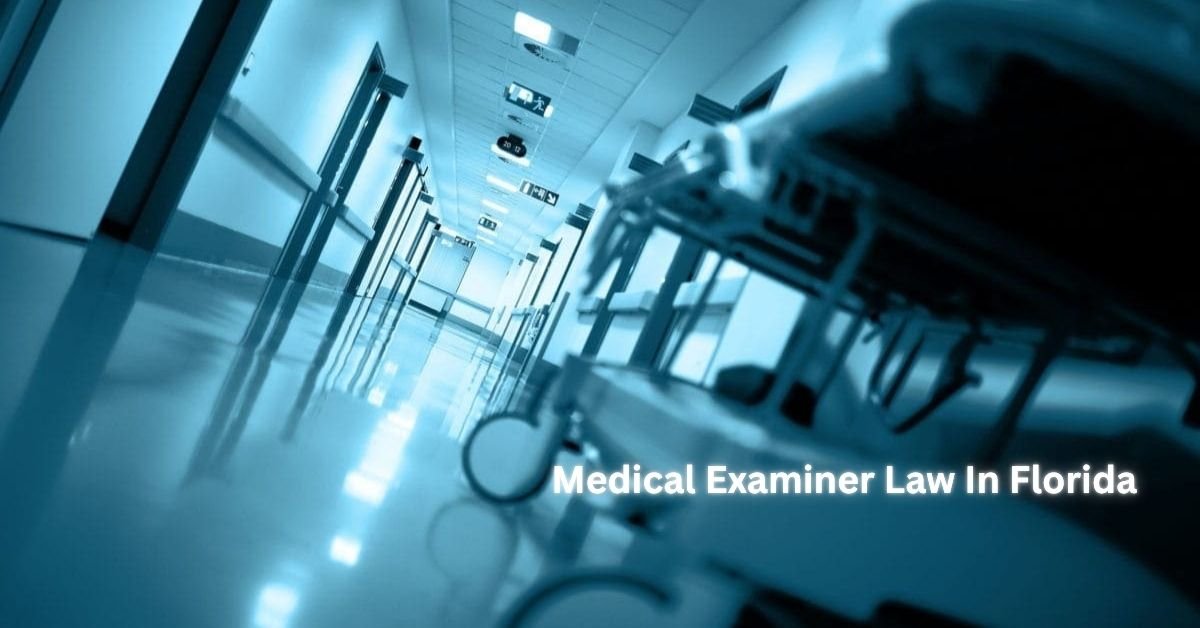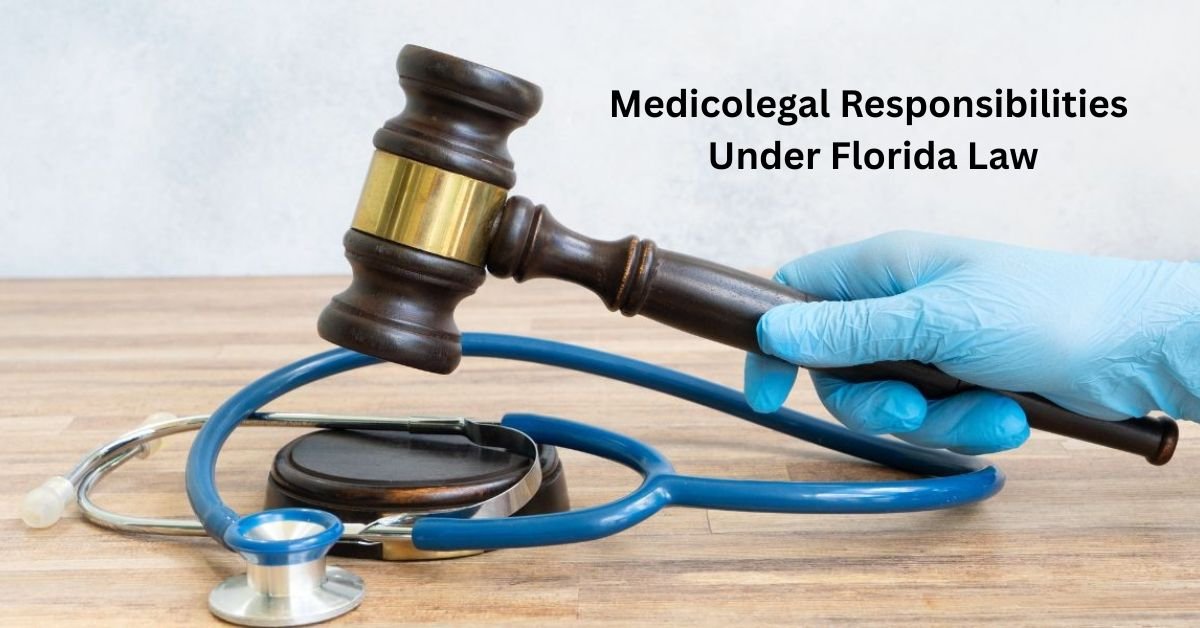Chapter 406 of the Florida Statutes forms the legal foundation for the state’s medicolegal death investigation system. Titled “Medical Examiners; Disposition of Human Remains”, this chapter outlines the responsibilities, structure, and legal authority of medical examiners in Florida, as well as regulations surrounding the handling, transport, and final disposition of human remains.
This article provides a detailed overview of Chapter 406, explaining its statutory components, implementation mechanisms, public health implications, and its central role in maintaining transparency, justice, and public safety in Florida.
Purpose and Scope of Chapter 406
Chapter 406 is part of Title XXIX, which deals with public health. It ensures that deaths occurring under unusual, suspicious, or public health-sensitive circumstances are investigated by qualified professionals. This chapter aims to:
- Establish a standardized system for investigating certain types of deaths
- Authorize the appointment and oversight of medical examiners
- Ensure the ethical and legal disposition of human remains
- Promote cooperation between medical, legal, and law enforcement agencies
The statute applies to all 67 counties in Florida and is enforced through a district-based system administered under the oversight of the Florida Medical Examiners Commission (FMEC).
Key Sections of Chapter 406
Chapter 406 is divided into several major parts, each addressing a specific aspect of death investigation and human remains management.
1. Section 406.01 – District System
This section establishes Florida’s medical examiner system as a district-based model. The state is divided into 25 medical examiner districts, each assigned a District Medical Examiner who is responsible for investigating reportable deaths within their jurisdiction.
The creation and adjustment of district boundaries are overseen by the Florida Medical Examiners Commission, which ensures that all areas of the state are adequately served.
2. Section 406.02 – Medical Examiners Commission
This provision establishes the Florida Medical Examiners Commission (FMEC) as the central administrative and regulatory body for the system. The commission’s responsibilities include:
- Approving the appointment and reappointment of medical examiners
- Setting professional and ethical standards
- Reviewing complaints and conducting investigations
- Monitoring compliance with rules and statutory duties
The FMEC operates under the Florida Department of Law Enforcement (FDLE) and includes members from law enforcement, the medical community, and state agencies.
3. Section 406.11 – Examinations, Investigations, and Autopsies
This is one of the most critical sections of Chapter 406. It defines the types of deaths that must be reported to and investigated by a medical examiner. These include:
- Homicides, suicides, and accidental deaths
- Sudden or unexpected deaths not under medical supervision
- Deaths in custody (jail, prison, or police)
- Deaths due to diseases that constitute public health threats
- Deaths occurring under suspicious or unusual circumstances
Section 406.11 empowers the medical examiner to take custody of the body, order an autopsy, and access medical and legal records related to the case.
4. Section 406.12 – Notification Requirements
This section mandates that law enforcement, hospitals, or any individuals who become aware of a reportable death must immediately notify the District Medical Examiner. Failure to do so may result in penalties, and any obstruction of an investigation is considered a legal offense.
5. Section 406.13 – Autopsy Authorization and Procedures
Under this section, a medical examiner may order or perform an autopsy when legally required or deemed necessary for determining the cause of death. The statute grants them the authority to collect specimens, conduct toxicology, and retain organs for examination as part of the forensic process.
Families may object to autopsies on religious grounds; however, the statute provides that in cases involving criminal or public health concerns, an autopsy may proceed without consent.
6. Sections 406.50–406.61 – Disposition of Human Remains
These sections govern the handling, transportation, cremation, and final disposition of human remains. Specific provisions include:
- Permits and documentation required for cremation
- Procedures for unclaimed or indigent remains
- Regulation of body donation for medical or educational purposes
- Legal process for disinterment and reburial
These statutes ensure that remains are treated with respect and that processes conform to ethical, health, and legal standards.
7. Section 406.145 – Unidentified Deceased Persons
This section addresses protocols for cases involving unidentified human remains. It requires:
- Detailed documentation, including photographs and fingerprints
- Submission of identifying data to state and national databases (e.g., NamUs)
- Timely collaboration with law enforcement and forensic specialists
The goal is to improve identification and assist families in finding missing persons.
Implementation and Enforcement
The primary responsibility for implementing Chapter 406 lies with:
- District Medical Examiners, who lead individual death investigations and supervise forensic staff
- The Florida Medical Examiners Commission, which regulates the system and enforces compliance
- Local Boards of County Commissioners, which provide funding and facilities for medical examiner offices
Collaboration with law enforcement agencies, public health departments, and the judiciary is essential to fulfilling the statute’s mandate.
Public Records and Legal Implications
Under Florida law, most medical examiner records, including autopsy reports, are public documents. However, certain exceptions apply, including:
- Active criminal investigations
- Deaths involving minors
- Sensitive medical or mental health data
Chapter 406 intersects with Chapter 119 (Public Records) and must be interpreted in conjunction with privacy and evidentiary laws. Medical examiners often serve as expert witnesses in court, and their findings carry significant legal weight.
Importance to Public Health and Justice
Chapter 406 plays a pivotal role in:
- Identifying causes of sudden or unnatural deaths
- Informing criminal prosecutions
- Preventing disease outbreaks by identifying public health threats
- Supporting public trust through transparent and standardized investigation procedures
Florida’s structured approach, as mandated by Chapter 406, is seen as a model for other states seeking to balance professional oversight with local administration.
Recent Developments and Considerations
Florida continues to update aspects of Chapter 406 in response to evolving forensic standards, caseload demands, and public health needs. Recent efforts include:
- Expanded use of digital death registration and case management systems
- Improved coordination for mass fatality incidents and disaster response
- Ongoing review of funding models for medical examiner offices
There is also growing attention to workforce challenges, such as the shortage of board-certified forensic pathologists, which may require legislative solutions or funding incentives.
Conclusion
Chapter 406 of the Florida Statutes serves as the legal backbone of the state’s death investigation and human remains management system. It establishes a framework that prioritizes medical expertise, legal integrity, and public accountability.
By clearly defining the responsibilities of medical examiners, the rights of the deceased and their families, and the legal procedures for investigating deaths, Chapter 406 ensures that Florida’s medicolegal practices align with national forensic standards and uphold the principles of justice and public health.
References
- Florida Statutes, Chapter 406 – Medical Examiners; Disposition of Human Remains: https://www.leg.state.fl.us/statutes
- Florida Medical Examiners Commission: https://www.fdle.state.fl.us/MEC
- Florida Department of Law Enforcement (FDLE): https://www.fdle.state.fl.us
- National Association of Medical Examiners (NAME): https://www.thename.org












